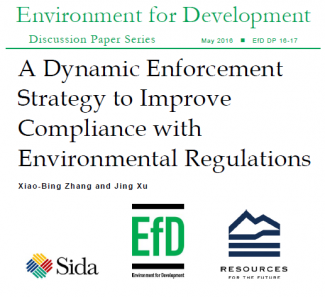FILTER
Displaying 11 - 18 of 18 publications
This paper investigates the optimal quota/tariff polices for China and India, two of the biggest developing countries who are facing the threat of possible oil supply disruptions, with taking into…
| Peer Reviewed | ChinaAn appropriate design of climate mitigation policies such as carbon taxes may face a lot of challenges in reality, e.g., the strategic behavior of fossil fuel producers, and huge uncertainty…
| Peer Reviewed | ChinaCompared with the developed countries, the developing countries could be more vulnerable to oil supply disruptions due to their lack of strategic petroleum reserves (SPRs). Several developing…
| Peer Reviewed | ChinaOutdated capacity and substantial potential for energy conservation are the two main features of energy-intensive sectors in developing countries. Such countries also seek to implement market-based…
| Peer Reviewed | ChinaUsing eight rounds of household survey data that span two decades, this paper analyzes the determinants of household fuel choice in urban China. Using the correlated random effects generalized ordered…
| Peer Reviewed | ChinaThis paper develops a stochastic dynamic programming model to investigate a type of dynamic enforcement strategy where the penalties for violations of environmental regulations are based on not only…
| EfD Discussion Paper | ChinaAbstract: Harrington (J Public Econ 37: 29-53, 1988) shows that a suitable strategy for regulators to make enforcement more efficient is to target surveillance resources according to past compliance…
| Peer Reviewed | SwedenInternational environmental agreements (IEAs) are considered an important way to increase the efficiency of emission abatement and climate change mitigation. This paper uses a game-theoretic model to…
| EfD Discussion Paper | China